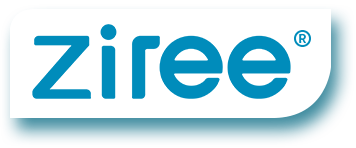What is Eczema?
Eczema is a chronic, inflammatory, itchy skin disease, the rash is pleomorphic, symmetrically distributed, markedly itchy, chronic course,Seriously affect the quality of life of patients. Patients often have allergic diseases such as allergic rhinitis and asthma, and there are often similar allergic diseases in the family Most patients have elevated serum immunoglobulin E (gE).
Basic cause
genetic factors
Genetics is the most important factor in determining whether a person is allergic. Many eczema patients have genetic factors to varying degrees, the most typical of which is Atopic eczema (genetic allergic dermatitis or atopic dermatitis), studies have found that among the children of parents with atopic (genetic allergies) 70% will suffer from atopic eczema, and if one parent is atopic, 50% of the children will be affected.
immune abnormalities
Patients with eczema often have T2 cell activation, increased blood eosinophils, and increased serum 1gE levels. When testing for allergens, often There is 1gE corresponding to various allergens.
Changes in female hormone levels
Some female patients with chronic eczema have skin lesions before menstruation or periodically during menstruation.
Because of autoantibodies, this may be related to allergies.
Some pregnant women may develop eczema-like rash with severe itching, which may be caused by allergy to progesterone, and disappear soon after a period of time after delivery.
Endocrine and Metabolic Diseases
Diabetes and thyroid diseases can easily lead to skin itching and eczema, which are often the first symptoms of the disease. Such patients often have skin itching first, and the skin is itchy for a long time.
Subacute and chronic eczema such as pimples, plaques and hypertrophic plaques appear on the skin, and the general antiallergic treatment effect is poor. In addition to itchy and wet skin
In addition to the rash, other skin manifestations such as skin myxedema (in patients with hyperthyroidism), vascular lesions, and fungal infections (in patients with diabetes) may also occur.
Chronic infectious foci
Some chronic eczema patients often have chronic infectious lesions, such as chronic gastritis, chronic cholecystitis, chronic appendicitis, chronic genitourinary infection, etc.
Infection, throat or paranasal sinus infection foci, etc. Eczema in these patients tends to come and go, and once these foci of infection are cleared, eczema often follows heal.
How to treat Eczema
Medication treatment
Antihistamines: The doctor will choose appropriate antihistamines to relieve itching and anti-inflammation according to the patient's condition.
Antibiotics: For those with extensive infection, the doctor will recommend systematic application of antibiotics for 7-10 days.
·Vitamin C, calcium gluconate, etc. have certain anti-allergic effects, and are used for patients with acute attacks or obvious itching.
Glucocorticoids: Generally do not advocate routine oral use. However, for patients with clear etiology and short-term elimination of the etiology, such as exposure factors, drugs, etc.
Those caused by factors or their own sensitive dermatitis, etc.; for severe edema, generalized rash, erythroderma, etc., in order to quickly control the symptoms, the doctor will recommend
Short-term application. After the symptoms are controlled, reduce or stop the drug in time under the guidance of a doctor to avoid adverse reactions.
Immunosuppressants: mainly used for severe patients, doctors generally strictly control the indications, limited to other treatments that are ineffective, or short-term systemic application of sugar
After the condition of corticosteroids has been significantly relieved, it is used when the use of glucocorticoids needs to be reduced or stopped. Commonly used drugs include cyclosporine, methotrexate, and mecofen etc.
Light Therapy
Ultraviolet therapy includes UVA (340-400nm) irradiation, UVA/UVB irradiation and narrow-band UVB (310-315nm) irradiation.
It has a good curative effect on chronic intractable eczema.
Notice in Daily life management
·To develop healthy eating habits and avoid partial eclipse. The daily diet of patients with eczema should be based on light, digestible, low-salt and low-oil foods, and less Eat milk, fish, eggs and other foods that are likely to aggravate the condition and cause allergies, and do not eat spicy food. For infants with eczema Children should try to ensure breastfeeding.
· Proper bathing, you can take a bath 2 to 3 times a week. It is better to take a shower when taking a bath, do not scald with hot water or over-wash the skin lesions, so as not to aggravate the disease Affection. Use neutral bath liquid or soap when taking a bath, dry the body in time after washing, and apply external emollients to the affected area.
·Try to wear soft, loose cotton or other natural fiber clothes, and avoid wearing clothes made of man-made fibers and wool that may cause allergies Take it to avoid aggravating the symptoms of allergies.
· Pay attention to control the temperature and humidity in the room. An environment that is too stuffy or too dry can lead to recurrence of eczema. Therefore, patients with the disease In summer, indoor air circulation should be ensured. When heating is used in winter, a humidifier or a basin of clear water can be placed indoors to maintain the relative humidity in the room.Humidity, if necessary, rub an oily lotion on the skin to moisturize the skin.
·Protect the affected area when going out, especially avoid the affected area from being exposed to wind or sunlight for a long time, so as not to cause dry skin and aggravate the condition.Eczema patients should maintain a happy mood and avoid negative emotions such as tension, depression, anxiety, irritability, and anger, which is also beneficial in the recovery of the disease.

